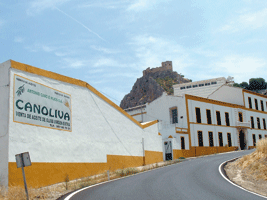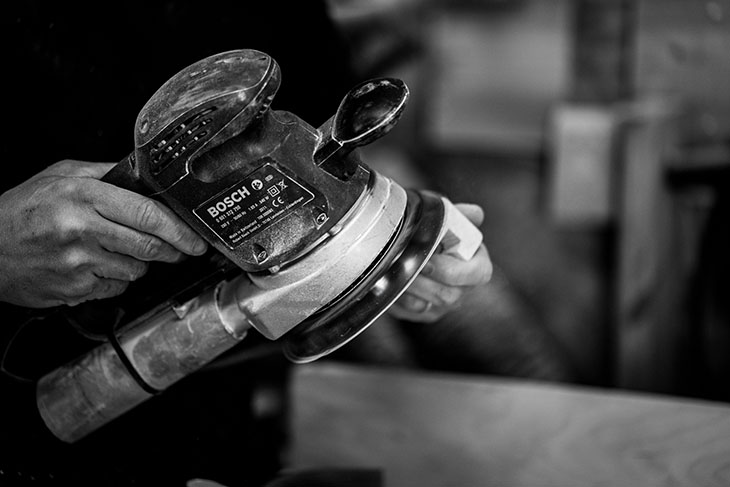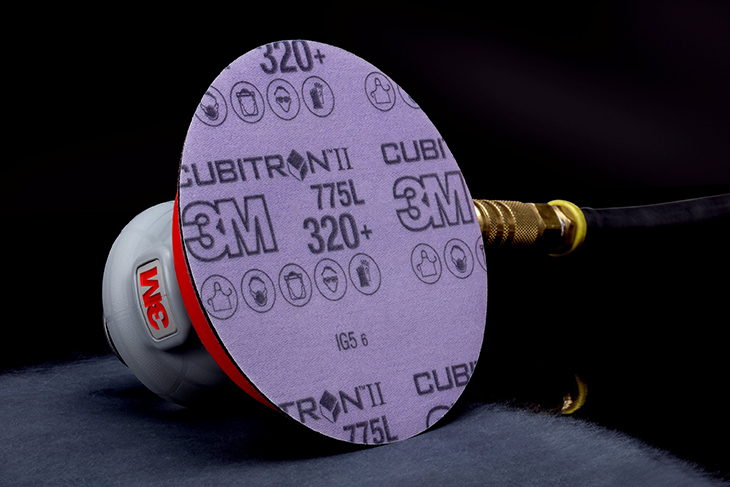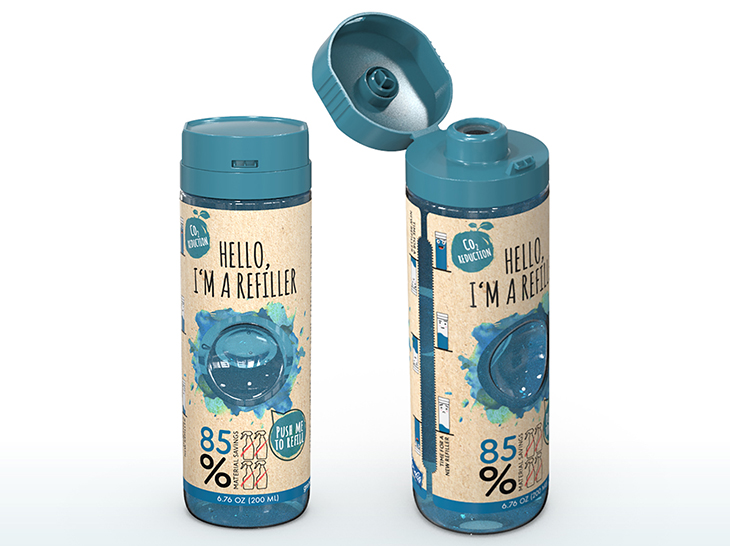There are few things more associated with Spain than its olive oil. This is understandable, as Spain is the world’s number one olive cultivator. Regardless of the quantity of said olives – the variety and standard are utterly superb and that’s what makes the Spanish extra virgin olive oil a definite leader among its competition.
Canoliva, Antonio Cano e Hijos, S.A., one of the Spanish most resilient olive producers, invited us to take a closer look at the land of olives and olive oil.
Brief history of the company
The company was founded in 1968 in the area of Luque – a small Spanish town halfway between Cordoba and Granada, in the famous Spanish country of Andalucia. The company beginnings are quite interesting; Mr. Antonio Cano started to produce olive oil from his and his neighbors’ olives during hard times for Spanish agriculture at the end of the sixties. His target was to obtain only the best quality of the products by patiently choosing the best olives and carefully processing them with closest attention to detail. The same guidelines were followed for 42 years of the company history. The current position as one of the major players in the Spanish olive market and high volumes of export sales prove that the firm has chosen the right direction. In 1988 Canoliva changed it’s structure a bit, so that the family of the founder were incorporated in the management process. Thus the company became Antonio Cano e Hijos, S.A. and it remains a family business up till today.
The liquid gold
It was ancient Greek Homer, who first described olive oil as “the liquid gold”. Indeed, it seems that there are only advantages coming from involving it in your daily diet. Olive oil is the recommended fat for almost everyone. This is due to the high levels of monounsaturated fats present in the olive oil, which reduce the risk of coronary heart disease. That is however not the only reason why olive oil is gaining more and more popularity each and every year. One can also benefit from replacing traditional saturated fats with olive oil as it’s been proven that it’s also a very good cholesterol regulator. Plus, it’s tastes great.
Different grades of olive oil
But one can easily be fooled by olive oil producers as there are many different grades of the liquid and each one offers different levels of oleic acid. An intergovernmental organization has been brought to life to prevent olive oil adulteration. The International Olive Oil Council consists of 23 member states and is based in Madrid. It’s the organization responsible for creating a classification and grading system, which currently is used in all of its member countries. The lowest grade a bottle of oil can get is refined olive oil, made from virgin olive oils with a high acidity level. Then, there are olive oil and pure olive oil, which in general are a blend of virgin oil and refined one, and usually lacks a great taste. Next, there is virgin oil with acidity less than 2%. Finally, the very best of olive oils is the extra-virgin olive oil, with the acidity less than 0,8% and an exceptional taste. Canoliva is proud to be producing only the finest extra-virgin olive oils. Note that these regulations only apply for 23 countires – members of the International Olive Oil Council. Some important markets are being flooded with olive oil labeled as extra-virgin with no basis for that grade whatsoever. For instance, United States of America, number four olive oil consumer worldwide is a victim of such fraud.
Canoliva – among the richest tastes
Olive Oil produced by Canoliva is always of the best quality but is also adjusted to match the Customer’s needs. Thus, the company distinguished three various brands of olive oil, just for domestic purposes. The first one is Canoliva, named after the company was the first brand to hit the markets. It’s one of the first olives processed every season as it’s made between the 20th of October and the 20th of November. Its acidity is estimated at less than 0,3%. Then there is El Molino, an olive oil of a slightly fruity taste and acidity less than 0,6%. Biocano on the other hand is made from organic farming and consists also subtle tones of green almonds and apple. Its acidity does not exceed 0,3%. The latest addition to the impressive portfolio of the company is LA Organic, another organic line developed with some regional associates, as well as with Philippe Starck, a worldwide known designer and Michell Roland, a famous wine expert. This sophisticated, top-quality line is designed for the choosiest gourmet cuisine lovers.
How does one make an olive oil?
To fully understand total devotion to quality presented at Canoliva’s factory one must comprehend the production process of olive oil. First, the producer has to obtain the olives. In Spain, the harvesting period usually takes plase around November. Traditionally the harvesting is done by hitting the olive tree with long sticks. The olives fall down onto nets spread on the ground beneath the tree. Nowadays it’s more common to do that process by mechanical vibrations. The olives are transported to a factory as fast as possible. There the leaves are removed, the fruits are washed and ground into a paste. The paste is later being separated from the liquid, which consists of olive oil and juice. This process was traditionally done with a mechanical press, but now it’s more popular to use a centrifuge. It takes approximately an hour for the oil and the juice to separate, but some processing plants use additional, vertical centrifuge to speed up the process.
The production process at the facility
Antonio Cano has a large number of olive suppliers in the area of Sierra Subbetica, mountain national park near Cordoba. These lands have been famous for years for its olive plantations. People at Canoliva are known to be very choosy when it comes to choosing its suppliers, picking only the best harvesters of such subspecies as picuda, hojiblanca, picual or lechin. These best olives available come from five different places in Andalucia and are transported to a strategically placed processing facility near Luque. There, the olive oil is being made with a state of the art equipment and top notch personnel. The capacity of the production process equals 650 tones of olives per diem, which produces 120 tones of olive oil. On average, the company produces 6 thousands tones of extra virgin olive oil annualy.
Certifications and awards
Canoliva is also famous for its ecological approach to production. Its processing facility is 100% environmental friendly, while a significant percentage of produced olive oil is labeled as ecological. This resulted in receiving an ISO:14001 certification for environmental friendly approach to business. This is however not the only certification that the company can be proud of. Granted by the prestigious Bureau Veritas, an ISO:9001 has been received as an acknowledgement for the firm’s total devotion to quality. Canoliva has also obtained the BRC / IFS Certification, which guarantees the production procedure of its Ectra Virgin Olive Oils. Among numerous awards that can be found in the enterprise’s collection one may find interesting those awarded by the Ministry of Agriculture; Canoliva was named the Best Alimentary Company of Spain in 2002 and Best Organic Producer of Spain in 2005. Not to mention numerous olive oil festivals awards.
Reasons of success
This enormous success couldn’t be possible if it wasn’t for the company’s total attention to Customers’ needs. According to Canoliva’s philosophy – the Customer is always closest to the market. As a matter of fact, he creates the market, hence the firm’s offer must always be adjusted to what he demands. This model has been pursued for years and may very well be one of the reasons why in such difficult times as these Canoliva is constantly increasing its sales volume. These days new challenges rise for every company – for Antonio Cano and his sons it is to find their place on new, emerging markets such as China or South America. But the core of their business is to convince the people that olive oil is indeed the liquid gold, both healthy and rich in taste.
Written by Łukasz Światowiec

























